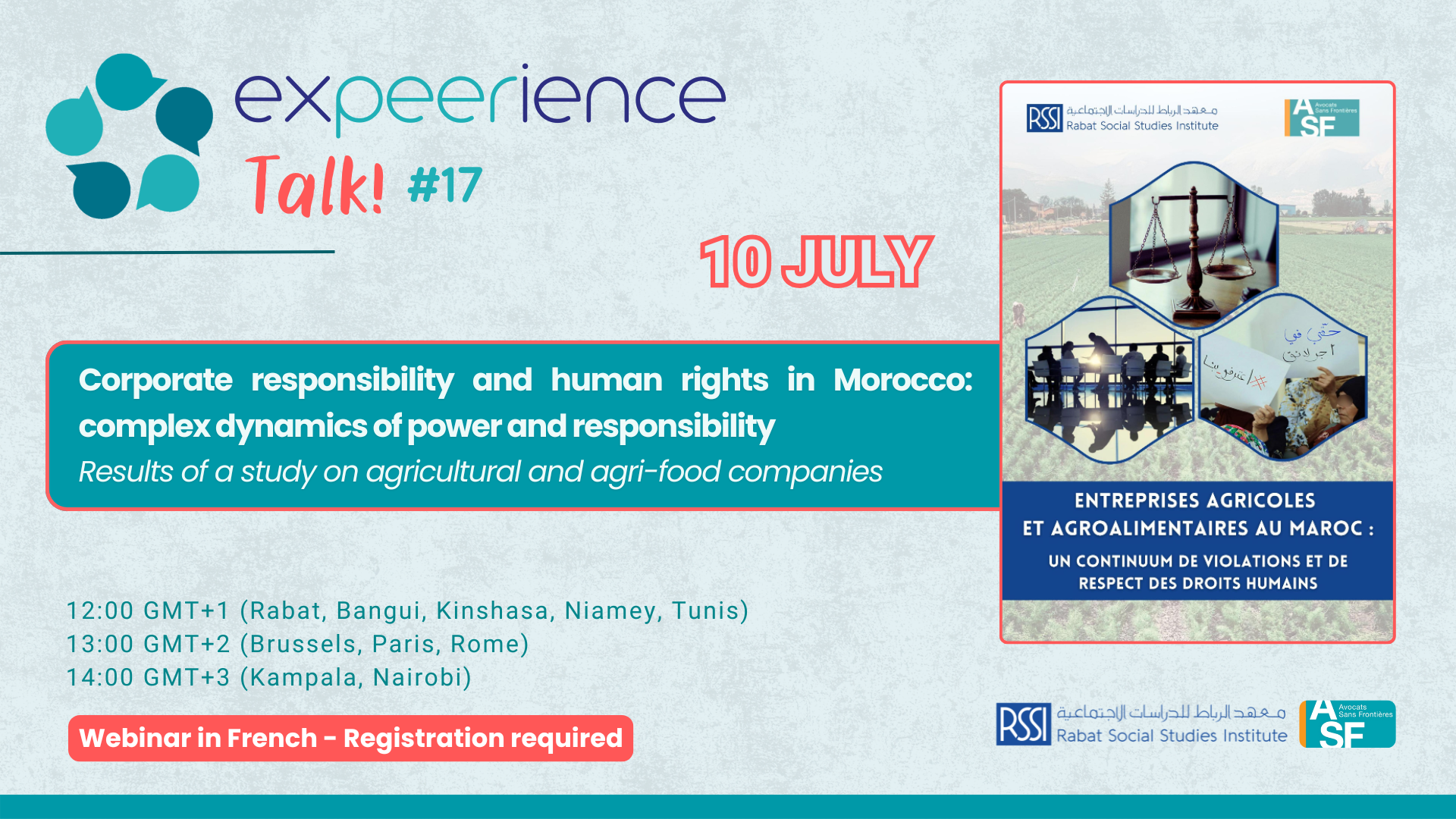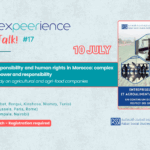Presentation of the Results of a Study on Agricultural and Agri-Food Companies

- When? Thursday 10 July
- Time: 12:00 – GMT+1 (Rabat, Bangui, Kinshasa, Niamey, Tunis) / 13:00 – GMT+2 (Bruxelles, Paris, Rome) / 14:00 – GMT+3 (Kampala, Nairobi)
- Language: French
- Free webinar – Registration required
Between legal obligations, informal practices and structural violations
Avocats Sans Frontières (ASF) and the Rabat Social Studies Institute (RSSI) invite you to a webinar devoted to the presentation of the results of the report “Agricultural and agri-food companies in Morocco: a continuum of human rights violations and respect“, the result of an in-depth survey carried out among small and medium-sized enterprises (SMEs) in the agricultural and agri-food sectors.
This event will bring together speakers from the RSSI who contributed to the drafting of the report, who will share their expertise on the issues of social justice, corporate responsibility, and labour rights in Morocco.
Context
This report highlights a contrasting business landscape, where some companies demonstrate respect for human rights, while others merely comply. A number of alarming realities emerge:
- Irregular and inadequate wages;
- Dangerous working conditions, without sufficient health and safety guarantees;
- Freedom of association denied, with targeted discrimination;
- Gender discrimination, particularly against women workers in the informal economy;
- Marginalisation of environmental protection and local communities.
Challenges and levers for change
The report also identifies several structural obstacles to the effectiveness of human rights in agricultural and agri-food companies:
- The absence of binding obligations on companies;
- Crony capitalism, which favours the interests of economic elites;
- Lack of resources for labour inspectorates;
- The fragility of trade union and community counter-powers.
In light of these findings, the report recommends strengthening laws, establishing binding mechanisms, and fostering cooperation among the State, companies, and trade unions to ensure the protection of workers and the communities they affect.
Speakers
Imane Nya
Holder of a doctorate in economics from the Souissi-Rabat Faculty of Economic, Social and Legal Sciences, she is currently a member of the Rabat Social Studies Institute (RSSI). Her work focuses on issues relating to inequality and injustice, particularly about the environment, with a particular interest in waste management, the limits of renewable energy, and the governance of water resources.
Saloua Zerhouni
Professor of political science at Mohammed V University in Rabat, Morocco, where she has also served as vice dean for scientific research and cooperation. She is a founding member of the think tank Rabat Social Studies Institute. She has over two decades of experience at the intersection of research, pedagogy, and policy in North Africa. Her research focus encompasses critical areas such as authoritarian resilience, electoral dynamics, youth engagement in politics, social norms, violence against women, social movements, business and human rights, and the ethical dimensions of research in MENA countries.
Salwa Hanif
With a doctorate in Management Sciences from the University of Montpellier, she is interested in critical management studies, particularly the study and critique of entrepreneurial models. She is currently a teacher-researcher at the Ain Chock Faculty of Legal, Economic and Social Sciences at Hassan II University in Casablanca.
Objectives of the ExPEERience Talk #17
This ExPEERience Talk aims to present the main findings of the report, analyse the human rights practices of agricultural and agri-food companies in Morocco and share the recommendations put forward by the report.
This webinar aims to create a space for dialogue around a central question: how can companies take sustainable responsibility for human rights in Morocco?
Join us to find out more about the state of human rights in the agricultural and agri-food sectors in Morocco — an opportunity to exchange information and explore fairer and more structural responses to these challenges.



